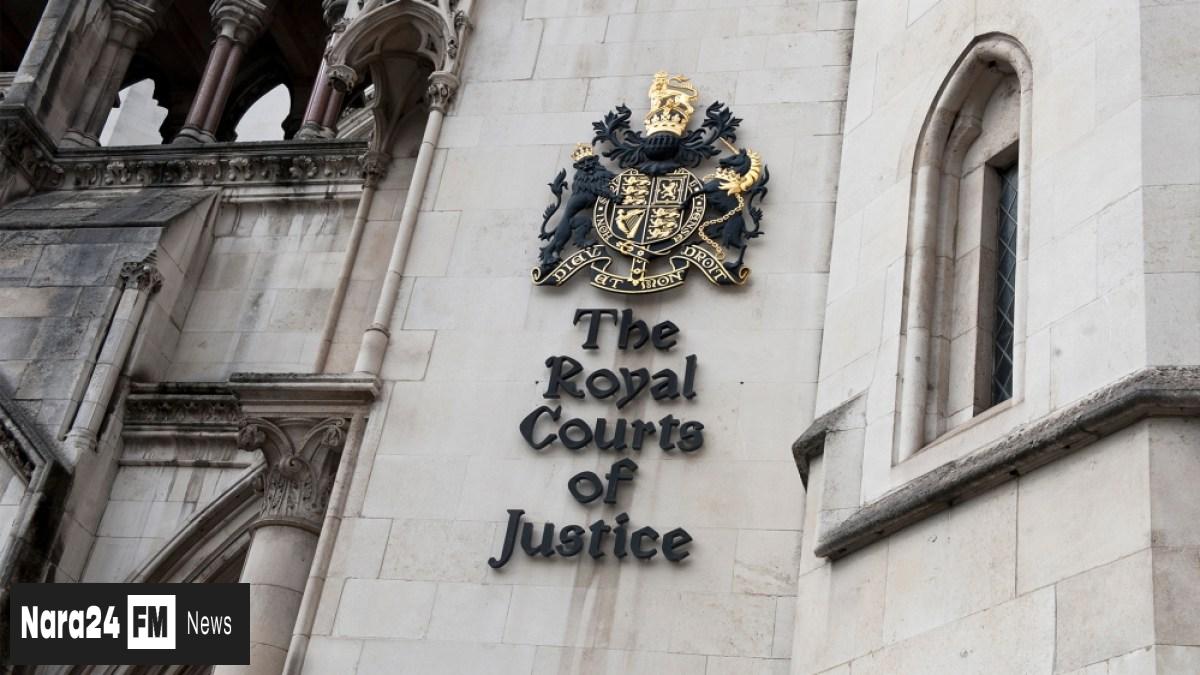
Haaland Hat-Trick Fuels Norway's Dominant World Cup 2026 Qualifier Win Over Israel
Erling Haaland's impressive hat-trick helped Norway secure a commanding 5-0 victory against Israel in their World Cup 2026 qualifier.
Britain's High Court has ruled that the government's decision to allow the export of F-35 jet parts to Israel is lawful, dismissing a challenge by human rights organisation Al-Haq that argued the action risked breaching international humanitarian law by enabling potential use in Gaza. The court stated it lacks the constitutional authority to rule on the legality of specific arms exports to Israel on such grounds.

The United Kingdom's High Court has delivered a landmark ruling upholding the government's decision to continue exporting components for the Lockheed Martin F-35 stealth fighter jet to Israel, dismissing a legal challenge brought by human rights organisation Al-Haq. In a detailed 72-page judgment, the court acknowledged that the exported parts could potentially be used in ways that violate international humanitarian law in the ongoing conflict in Gaza but firmly stated that the decision to authorize the exports was a matter for the executive branch, not the judiciary.
The case before the High Court questioned whether the UK government's exemption of F-35 parts from a partial suspension of defence exports to Israel, announced in September 2024, was legally sound. Al-Haq, which filed the case, argued that continuing the supply of these advanced components carried an "alleged risk of facilitating crime" when they could potentially end up in the hands of the Israeli military in Gaza, where actions are widely condemned and investigated for potential war crimes.
However, the court, in its ruling penned by Justices Stephen Males and Karen Steyn, concluded that the central issue was not the legality of the exports themselves but "whether it is open to the court to rule that the UK must withdraw from a specific multilateral defence collaboration... because of the prospect that some UK-manufactured components will or may ultimately be supplied to Israel, and may be used in the commission of a serious violation of international humanitarian law in the conflict in Gaza." The judges explicitly stated that "under our constitution, that acutely sensitive and political issue is a matter for the executive, which is democratically accountable to Parliament and ultimately to the electorate, not for the courts."
The UK is a significant contributor to the global F-35 Joint Program, manufacturing approximately 15 percent of each aircraft's components. These parts are built by various companies across different countries and then shipped to the main assembly lines, primarily in the United States. The UK government's Defence Secretary, John Healey, previously warned that suspending the supply of these parts could have severe consequences, potentially disrupting the entire international F-35 programme, affecting UK allies within NATO, and even impacting the UK's ability to supply advanced weapons systems, such as those needed by Ukraine.
Despite this, Foreign Secretary David Lammy announced the suspension of about 30 out of 350 export licences for items used in Israel's war in Gaza following a review for compliance with international humanitarian law. Crucially, this partial ban did not cover the specific F-35 components manufactured in the UK, including parts like refuelling probes, laser targeting systems, tyres, and ejector seats.
Organisations like Al-Haq and global advocacy group Oxfam International, which joined the legal challenge, pointed out that despite the suspension of other licences, the export of UK-made F-35 parts continued. A May report by pro-Palestinian activist groups corroborated this, finding that military items had indeed been exported to Israel even after the partial licence suspension.
The UK government maintained that blocking the export of F-35 parts was strategically unsound, citing the potential knock-on effects on the global programme and vital security partnerships. A spokesperson reiterated the government's position, stating, "The government has carefully considered the legal position, including advice from the Foreign Secretary and the Joint Committee on the F-35 Programme. The decision to continue the supply of these parts is lawful and necessary for national and international security interests."
Shawan Jabarin, chief of Al-Haq, reacted to the ruling, acknowledging the outcome but framing the case as a victory for amplifying the Palestinian voice. "Despite the outcome of today, this case has centred the voice of the Palestinian people and has rallied significant public support, and it is just the start," he stated. Jabarin added that civil society and human rights organisations had achieved a "crucial breakthrough" by exposing government failings and vowed to "persevere... until governments are held accountable, Israel's impunity is challenged and justice for the Palestinian people is realised."
The High Court's decision reinforces the UK government's authority over its arms export licensing policy, particularly concerning multilateral defence collaborations, even amidst concerns about the potential humanitarian impact of the exported goods. The strategic importance of the F-35 programme appears to have outweighed the court's consideration of the legal arguments regarding humanitarian law raised by Al-Haq.
The conflict in Gaza continues to be marked by devastating casualties. Since the war began in October 2023, Israeli attacks have resulted in reports of at least 56,500 Palestinian deaths and over 133,419 injuries, according to data compiled by news agencies. The prosecution of Al-Haq's habeas corpus challenge occurred amidst widespread international condemnation of Israel's conduct in the war, with calls for arms embargoes and sanctions against Israel growing louder.
Comments (0)
Leave a Comment
Be the first to comment on this article!